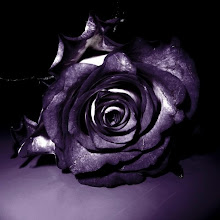Winterborn (by me)
The everlasting loneliness
The pain, endless
The scars that I kiss
The marks of my grief
The sorrow that cries
My silenced screams
When my winter comes
I'm, again, at home
Everything freezes
Everything withers
Everything dies
A beautiful shroud
Snowflakes
Ash falling down
The remains of my past
Put to dust
Burnt to ash
I was born in Winter. It was a cold morning. That day everything began. I was, violently, introduced to this world. I was given life, a “priceless gift from God”. I could not choose at that time, neither can I now. I’m an empty marionette, and pain holds my strings tightly. I’m spinning round and round, not being able to comprehend the existence of mine and I feel terribly sick, so much illness hides behind my lies.
I have never felt so lonely in my whole life. I really cannot find anyone who I can identify myself with. I feel like a freak, I just do not fit into society. I am not like “them”, I just cannot let myself be carried by human stupidity. Sometimes I wholeheartedly wish I were blithely ignorant. But, unfortunately, knowledge is in inverse proportion to understanding: the more you know, the less you get.
Everyone at some extent needs a drug to soothe their pain. There are so many defence mechanisms, my favourite one is sublimation. It is the refocusing of psychic energy away from negative outlets, toward positive, or the rechannelling of drives which cannot find an outlet. I cut myself in order to fulfill and calm down my innermost drives, desires and tensions. Physical pain draws my attention and “kills” the emotional pain for a very short period of time. Every time you do it, you want more and more, and you go deeper and deeper into your self-destruction. A cold atmosphere takes hold of your heart and you are left to rot in your own shit.
How can I make myself clear? How can I make myself understood? I see things that no-one else can see, I just do not know how to put them in words. In the end, only silence remains. I cover myself with an exquisite shroud of silent lies. Under the veil that smothers my eyes, time freezes and pain becomes everlasting. There is no past and no future, only a gloomy and eerie present that is overglorified and overperpetuated.

